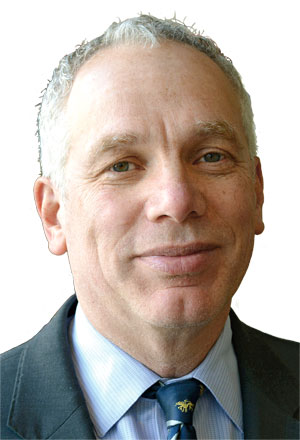The Law Society of Upper Canada is considering changing its name to move away from what critics say is an archaic tradition.

The provincial regulator’s Strategic Communications Steering Group is looking into the issue and could make a recommendation on it to the law society’s governing body, Convocation, as early as this summer or in the fall.
“Our name matters just like any name matters and we want to ensure that that name, while respecting traditions, also reflects who we are today, not just who we were 220 years ago,” says Bencher Julian Falconer, who is chairman of the steering group.
Falconer says the group was formed in February to consider how the law society interacts with the public, which includes the issue of its name. He stressed that the final decision on any potential name change will ultimately fall to benchers at Convocation once the steering group makes its recommendations.
“I can say, speaking for myself, it is high time we recognized that we are expected to be in touch with the public and expected to be accessible, and that includes our name,” he says.
The law society has had the same name since it was created in 1797 when Upper Canada was a province of a British colony. The law society held on to the name even when Upper Canada stopped being a political entity in 1841.
Proponents of a change say the name points back to a dark chapter in the country’s colonial history when unfair treaties were negotiated between the government of the time and First Nations people. They also say that a name change would be consistent with the LSUC’s commitments to the Truth and Reconciliation Commission of Canada’s calls to action.
Tom Vincent, a lawyer with the Ministry of Justice, proposed a motion at the LSUC’s annual general meeting back in 2012, asking the regulator to consider changing its name. The motion was voted down, but Vincent says the issue still resonates with him.
“Essentially, I think that the name ‘Upper Canada’ is archaic and poorly serves the public interest,” he says. “While ‘Upper Canada’ is a cool name for an antique shop, perhaps a candle manufacturer or a brewery, the name does not properly describe the geographic jurisdiction of Ontario.”
Vincent says that Upper Canada does not include what is now northern Ontario and that names such as Ontario Law Society or the Law Society of Ontario would be more suitable. The province of Upper Canada included what is today southern Ontario.
“This is just my own opinion, but as someone who does an extensive amount of work in northern Ontario for indigenous communities, it is very difficult explaining who Upper Canada is,” says Falconer.
Vincent says changing the name would also enhance the public’s understanding of the organization and would be more consistent with the names of lawyer regulators in other provinces, such as the Law Society of British Columbia and the Law Society of Alberta.
“I know we are a conservative organization, but hanging on to this pre-1841 name is ridiculous as Canada celebrates its 150th birthday,” Vincent says.
“We can do better. Let right prevail.”
Vincent says he thinks a name change for the organization is now inevitable. Other critics say the name is simply confusing to members of the public. Those in the profession who have resisted a name change say it would be counterproductive.
Earl Cherniak, a partner with Lerners LLP, says he sees “no logical, historical or other basis to change the name.”
“It’s always been the Law Society of Upper Canada,” he says. “It has got historical value.”
Cherniak notes that the law society had no role in negotiating the treaties indigenous communities struck with the government during the time Upper Canada existed.
He also says that changing the name could actually be more confusing for the public, as it could be hard for them to distinguish between the “Law Society of Ontario” and the Ontario Bar Association.
“The law society was and is the oldest law society in the Commonwealth and that is a historical fact that I believe should be venerated,” he says.
Falconer says that the steering group is still in the “formulating stage” of its initiatives, but it has been active in expert consultations to get an idea as to how the public and licensees feel about such issues.
The steering group’s recommendations will also look to improve public awareness of how to tackle legal problems and the law society’s communications strategies.
“There are a whole series of steps as a regulator we need to look at to strengthen our ability to service the public and to truly represent the public interest,” Falconer says. “It’s not just the name change. It’s a whole series of measures we’re working on.”
He says the process is long overdue, but the steering group is actively tackling these issues.
Falconer says the law society has a window of opportunity at the moment to make itself more relevant that was brought about with a change in governance and a more diverse roster of benchers that were elected in 2015.
In an emailed statement, LSUC Treasurer Paul Schabas said, “We wish to be a progressive and responsive regulator, and this issue is one that we will be giving careful consideration, including hearing from the public and members.”

 The provincial regulator’s Strategic Communications Steering Group is looking into the issue and could make a recommendation on it to the law society’s governing body, Convocation, as early as this summer or in the fall.
The provincial regulator’s Strategic Communications Steering Group is looking into the issue and could make a recommendation on it to the law society’s governing body, Convocation, as early as this summer or in the fall.